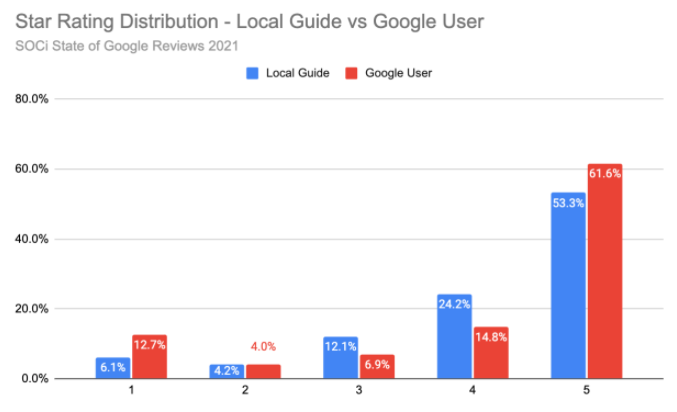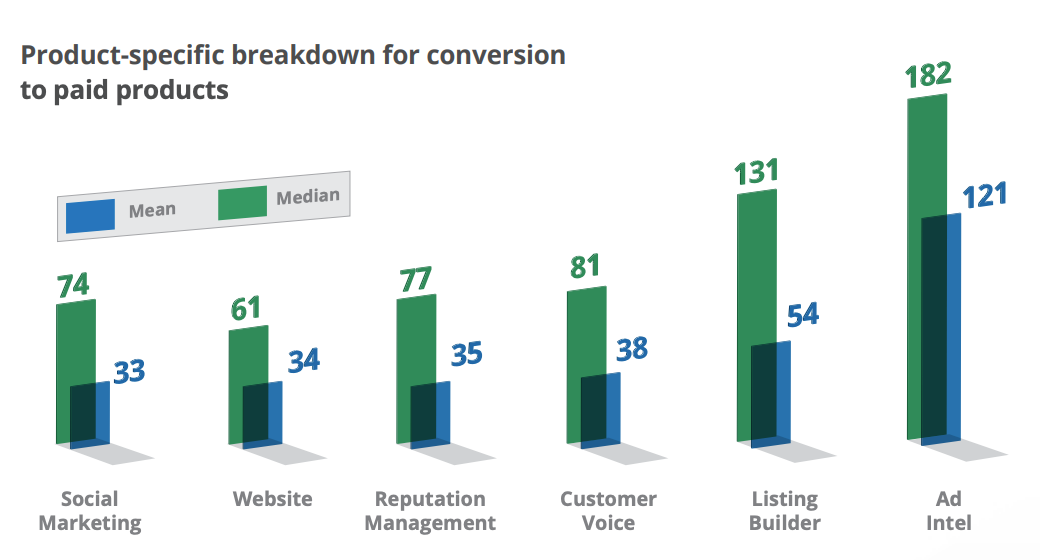Local Guides Dominate Reviews, SMB Freemium Adoption, Airport Facial Rec

Google Local Guides: More Volume, Shorter Reviews
A new SOCi analysis of nearly 170 million Google reviews across 1.1 million business locations yielded interesting insights about Google Local Guide (GLG) reviews vs. ordinary Google users (non-GLGs). The Local Guides program emerged in 2015 out of the earlier Google "City Experts," which launched in 2013 as a way to get more local reviews to better compete with sites like Yelp. Today there are roughly 150 million Google Local Guides globally. SOCi discovered GLGs write the majority of Google reviews (62%). In the restaurant category it's higher (69%). About 78% of GLG reviews are positive (4 - 5 stars) vs 76% for non-GLGs. The average GLG rating is 4.14. Beyond the volume of GLG reviews, here's the most interesting finding: "For every star rating, Local Guide reviews tend to be significantly shorter than reviews by other users." Only about 14% of GBP reviews had a business-owner response (shame, shame).

Our take:
- Google has heavily "gamified" the Local Guide system, with points and incentives. For more, see Mike's personal Local Guide story.
- SOCi didn't identify what guide levels were generating the most reviews. That's an interesting analysis for the follow-up study.
- Why are GLG reviews shorter? They're trying to create more reviews to accumulate points. Part of Google's emphasis on quantity over quality.
90 Days from Freemium to Paid for SMBs
It takes small businesses (SMBs) an average of 91 days to upgrade from a freemium product to a paid version. That's according to a new study from Vendasta that looked at nearly 350,000 SMB users on its platform. The company also found that "SMBs with multiple products and services under a single operating system were retained longer by our partners." In other words, they churn less. Only 30% of SMBs with a single product were retained compared with 78% of those using four products. In addition, SMBs who participated in online digital marketing education, "engaged more frequently online, engaged longer with the tools, made more purchases." The top three in-demand products according to the report were listings management, PPC analytics and reputation management.

Our take:
- This is a follow-up to a study Vendasta did several years ago, which also concluded that multiple product adoption by SMBs reduces churn.
- This is just one of several studies that argue product-lead growth is really the only way to penetrate the SMB market.
- Caveat: some percentage of freemium adopters don't engage and so won't convert. The report provides a kind of template for SMB sellers.
Airports: Gateway to a Biometrics Database
As I was boarding a recent flight to Europe – the first time I'd been on a plane since the pandemic started – I was asked to stare into a facial recognition scanner. One second later, I proceeded to the board the plane. Then I thought, "Wait, nobody asked for my consent." That's right, there were no disclosures and no opportunity to opt-out. I previously had used Clear so my fingerprints and pupils are already "on file." The NY Times covers the adoption of biometrics at airports in a piece called "Your Face Is, or Will Be, Your Boarding Pass." The article says most of these biometrics programs, including those like Clear that expedite security procedures, will be opt-in. However my experience with United wasn't opt-in; there was no discussion or signage at all. But many people will be lured to participate in these programs with promises of speed and convenience.

Our take:
- A United spokeswoman says in the article, "More than 250 international outbound flights a week are boarded biometrically." This will expand.
- Most flyers will default into the biometric boarding system, though they should think very carefully about it.
- A few years hence the US government will have a comprehensive facial recognition database. Absent legislation, there's no way to prevent this.
Recent Analysis
- Near Memo episode 44: Local Search Ranking Factors special edition with Darren Shaw.
- ICYMI: Confessions of a Google Local Guide, by Mike Blumenthal.
Short Takes
- Instagram has now has more than 2 billion users.
- Vox Media buys Group Nine Media creating digital giant (WSJ).
- Chinese company Oppo introduces "assisted reality" glasses.
- Google preparing to fire the unvaccinated among its workforce.
- Zoom's $85 million settlement portends more privacy lawsuits.
- Amazon, Apple, Google developing smart home universal standard.
- Guy pays to kill mistress, leaves positive online review for the killer.
- UK's Online Safety Bill, regulating social media, has global implications.
- B2B mapping platform Carto raises $61 million.
- Apple launches Android app to discover if AirTags are tracking you.
- Google hiring engineers to help build "innovative AR device."
- Huawei pitches itself as surveillance enabler for governments.
- Physical and digital worlds bifurcating: the metaverse is already here.
- YouTube to automatically link places in video descriptions.
- Facebook on COVID disinformation: "It's society's fault, not ours."
- Google's newsletter product Museletter shutting down December 20.
Listen to our latest podcast.

How can we make this better? Email us with suggestions and recommendations.

